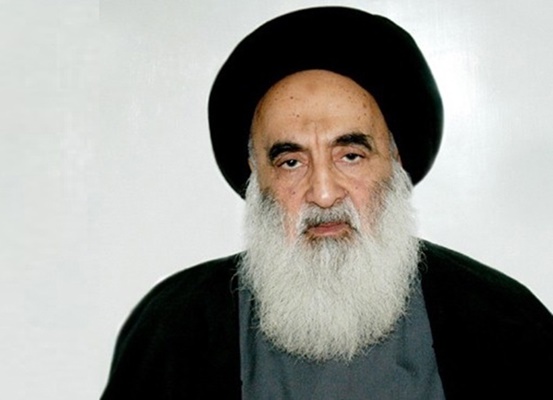
RNA – Grand Ayatollah Sayyid Ali al-Sistani was quoted as saying by Ayatollah Mohsen Ayatollah Araki, the Secretary General of the World Forum for Proximity of Islamic Schools of Thoughts.
Ayatollah Araki, who recently met Ayatollah al-Sistani during his stay in the holy city of Karbala to take part in Arba’in pilgrimage, says the Iraqi top cleric has underlined the need to preserve unity between Shi’ahs and Sunnis and added the latter have been deprived of security due to the relentless attacks by Daesh.
“In one of the recent meetings of Grand Ayatollah with a crowd of Popular Mobilization Forces, one member said we have peaceful coexistence with our Sunni brothers. In reply, Ayatollah al-Sistani underlined that they should never use the term Sunni brothers because we are from the same origin and there is no difference between us and them,” Ayatollah Araki said.
According to Ayatollah Araki, Ayatollah al-Sistani also said he had urged Popular Mobilization Forces to protect the Sunni families who are under Daesh attack under any condition.
“The top Shi’ah cleric said enemies are seeking to create division between the Shi’ah and Sunni Muslims in Iraq and there are many who call on him to issue a verdict in this regard but he has declined to do so until today because he thinks it is not in the interest of Iraq to contribute to any conflict between the two sides,” said Ayatollah Araki.
According to Sistani, when Daesh started attacking Sunni Muslims, most of them fled to the Shi’ah-populated regions and faced warm hospitality by their Shi’ah brothers and today, the Shi’ahs are reaping the fruits of their deeds.
Enemies Hatching Plot to Divide Iraq
Ayatollah Araki says Ayatollah al-Sistani also expressed satisfaction with peaceful coexistence among Shi’ah and Sunni Muslims in Iraq and said “in the Sunni-populated city of Mosul, people decided to pick up a Shi’ah candidate during the latest parliamentary elections. This reveals that the two sides have good relations with each other.”
According to IFP news Ayatollah al-Sistani said since the early days of Saddam regime’s overthrow, the US insisted on dividing Iraq into a number of regions but he vehemently rejected any such plans saying that Iraq must never be divided.
“They said the Shi’ahs will have the upper hand if Iraq is divided. They tried to tempt the Shi’ahs into agreeing with Iraq’s division,” Ayatollah al-Sistani was quoted as saying.
Ayatollah al-Sistani said he resisted against any plan to divide Iraq and said Iraq must remain united and the Iraqis should remain brothers with each other regardless of their schools of thoughts.
Arba’in, Axis of Unity in Islamic World
“Of course Iran played a key role in creating peace and security in Iraq,” Ayatollah al-Sistani said, adding, during the Arba’in march, people from various races and beliefs stood hand in hand revealing the unity in the Islamic World.
“During Arba’in, not only Shi’ahs and Sunnis but also people from other religions stood behind each other.”
Ayatollah al-Sistani then said that he benefits from the Iranian leaders’ ideas. “Under the Saddam regime, there were no appropriate communication channels. Today, I study other countries’ laws and regulations. I receive many books from Iran and fortunately good books are published there, which I draw on to deal with many issues.”
He finally prayed for the Iranian government and nation and expressed hope the issue of the unilateral sanctions on the country could be resolved soon and the Iranians could overcome their problems in the near future.
112/940